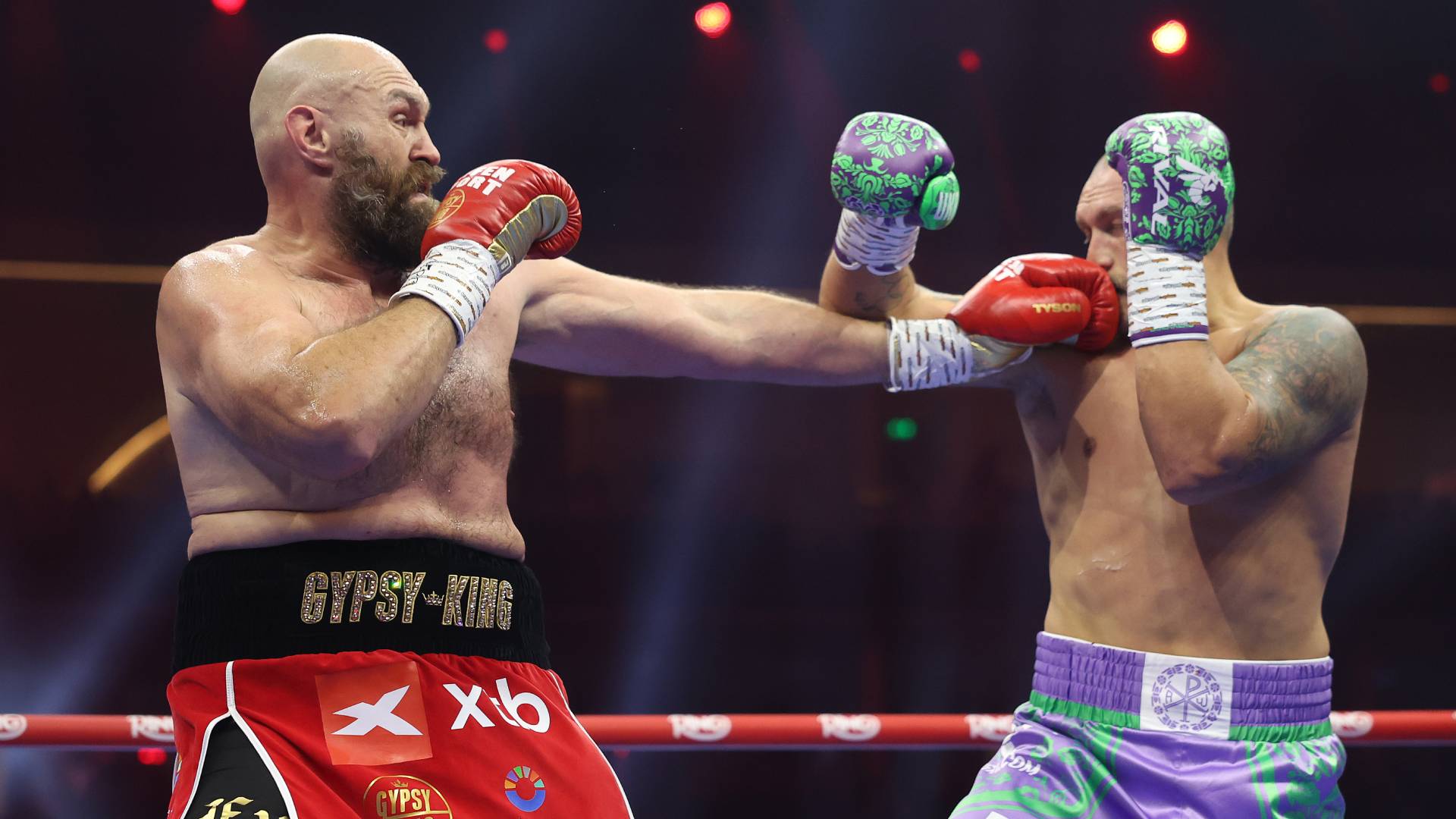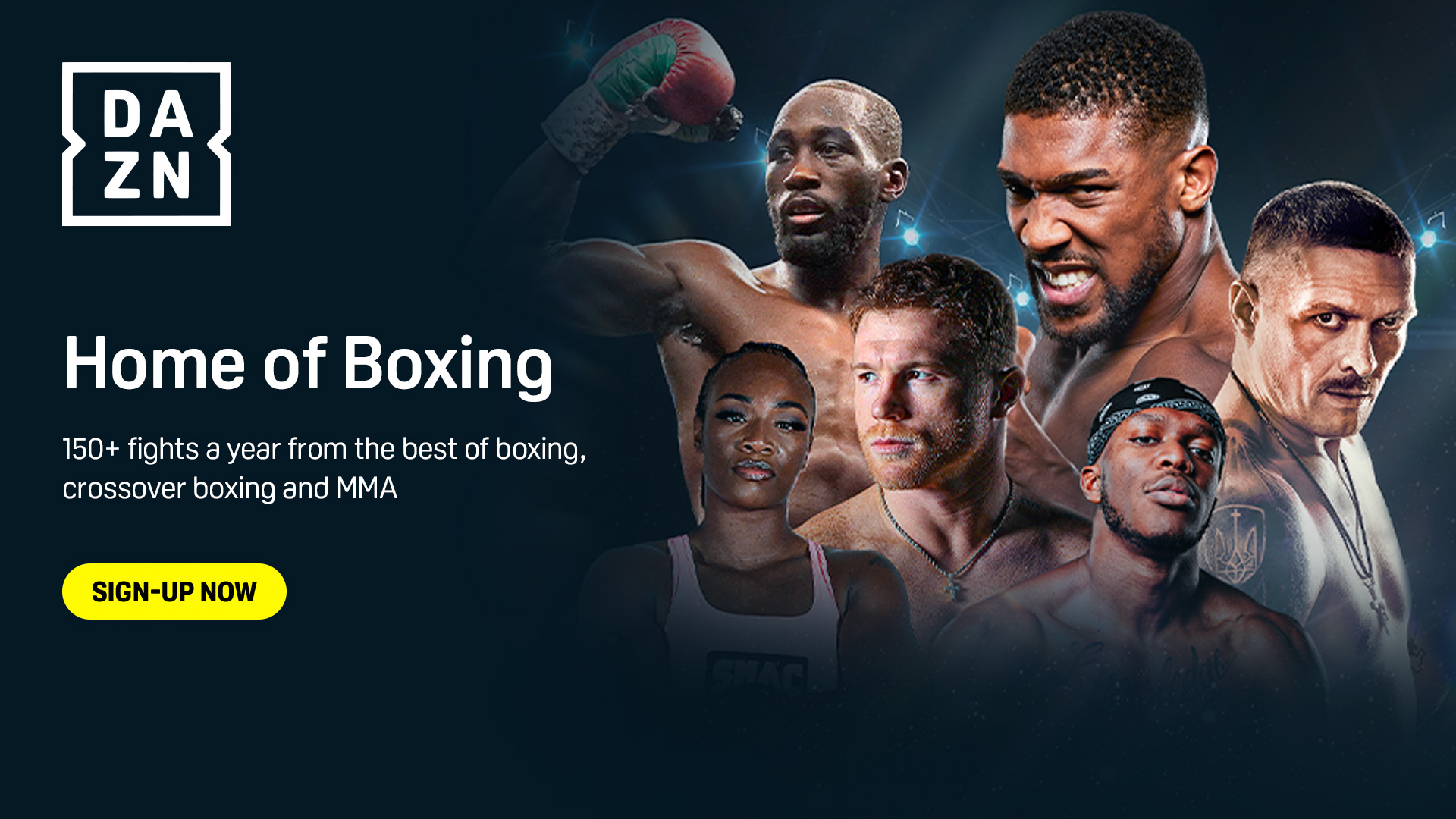The heavyweight division exists in a state of flux right now, a statement which might be hard to fathom given how we know – beyond all reasonable doubt - that Oleksandr Usyk is the main man.
Usyk is undeniably the best heavyweight of his generation given the fact that in his last five fights he has beaten Tyson Fury twice, Anthony Joshua twice and stopped current IBF champion Daniel Dubois.
Yet while we know Usyk is the current boss of bosses, what we do not know for certain is what he is going to do next.
The Ukrainian master boxer is 37 now, so privately will hear the clocks ticking louder than he once did, despite what him and his team are saying about fighting on.
Mr Fury of course announced his retirement again this week but with four ‘retirements’ already under his belt before Monday’s latest goodbye, cynics may be forgiven for believing they will see him walk to the ring in another big fight in 2025.
AJ – who carried the division for three violently brilliant years between 2016 and 2019 – is himself 35 now and might not fancy another career rebuild after that shocking KO loss at Wembley Stadium to Dubois.
There is obviously some real talent coming through – and none bigger than Moses Itauma – but for the first time in almost a decade Fury and Joshua are no longer considered the main men in the division and truthfully it all feels a bit weird.
As Kings of Tomorrow boomed in my favourite dance song of them all ‘Time marches on never ending’ and so the heavyweight landscape changing is nothing new.
The old must make way for the new. The torch must be passed. The greats – however talented – simply can’t go on forever.
Never was this better illustrated than the period between 1978 and 1988, an era where ‘The Lost Generation’ traded talent and titles for drugs and chaos.
In the decade between Muhammad Ali losing to Leon Spinks, and Mike Tyson obliterating Michael Spinks, there were no fewer than 15 different heavyweight titleholders.
This was an era unlike any other when - Larry Holmes aside - skilled big men had precious little motivation when it came to staying in shape, staying off booze and/or drugs, staying out of prison or creating generational wealth by being professional and consistent and defending the richest prize in sport.
‘Golden’ rather than ‘Lost’ Generation
At the core of the chaos was Don King, a shock-haired anti-hero who ruled the fighters – and the division - with an iron grip once Ali had retired.
King famously had a training camp in Orwell, Ohio where talented heavyweights such as Michael Dokes, Pinklon Thomas, Tim Witherspoon and others often went through the motions, knowing that the Dapper Don was deducting money from them all for training expenses, sparring partners, plane tickets and even towels.
As fabled scribe Michael Katz wrote in a May 1983 edition of The New York Times: “In this corner, a Don King fighter. In that corner, a Don King fighter. Frequently, they are both managed by the promoter’s adopted son, Carl. Guess who wins? … King’s control of boxing’s premier division is staggering: Both champions and 6 of the top 10 heavyweight contenders owe their loyalty to him.”
Disappointment and disenchantment are as much a part of boxing as the uppercut and given King’s monopoly on the heavyweight title at that time it didn’t really matter to him who won or lost the big world heavyweight title fights he put on.
So one by one these once promising athletes spiralled into a myriad of issues including – but not limited to - obesity, substance misuse or prison.
 Mark Robinson/Matchroom
Mark Robinson/Matchroom
Dokes was perhaps the poster boy for ‘The Lost Generation’. A National AAU champion and National Golden Gloves champion who before boxing also played American Football and ran track to a really high level.
Yet despite his natural gifts and physicality he ultimately saw his career destroyed by cocaine and ill-discipline, despite spending a short time as WBA world heavyweight champion between 1982 and 1993.
Thankfully the heavyweight scene seemed to reach its nadir in that bleak 10 years between 1978 and 1988, and the modern-day picture is unrecognisable with the top men staying out of rehab and police cells by largely staying dedicated to their craft.
Thanks to Saudi Arabia’s commitment to boxing, the best have consistently been fighting the best and records have been broken when it comes to live gate attendances and hard cash (Fury v Usyk 2 was the richest fight in history in terms of purse money).
Revisionism is what makes history interesting and meaningful, and in years to come the last 10 years will eventually be regarded as a heavyweight boom time.
Thanks to the endeavours of Usyk, Fury, Joshua, Deontay Wilder, Wladimir Klitschko and others we are very much talking about a ‘Golden’ rather than ‘Lost’ Generation.
Sign up to a DAZN subscription to watch the very best boxing
DAZN is the home of boxing, broadcasting over 150 fights a year across boxing, bare knuckle boxing, MMA and crossover boxing.
It is not just about fight night, a DAZN membership also includes access to documentaries and features, weekly boxing magazine shows, live fight watchalongs, press conferences, weight-ins, open workouts, exclusive interviews and access to training camps, and podcasts and vodcasts.
Signing up for a subscription right now, with both annual and monthly options, will get you a ringside seat to the biggest fights in 2025.
For pricing, more information and to sign up for a DAZN subscription, click here.

